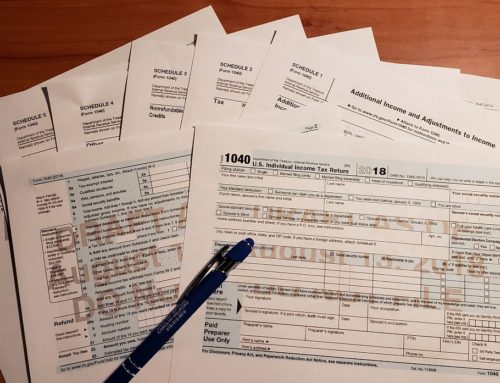Maximize Your Savings: A Detailed Guide to Business Tax Deductions
Running a small business is both rewarding and challenging. One way to ease the financial burden is by taking advantage of tax deductions available to business owners. Deductions can significantly reduce your taxable income, putting more money back into your business—or your pocket. At CMW Tax Services Corp, we’re here to help you navigate the complex world of tax deductions to ensure you’re claiming everything you’re entitled to.
Below is a comprehensive list of common business deductions you may be eligible for. Keep in mind that tax rules are nuanced, and eligibility depends on your specific circumstances. Always consult with a qualified tax professional to ensure compliance and optimize your savings.
- Home Office Deduction
If you use part of your home exclusively for business purposes, you may qualify for the home office deduction. This can include a portion of:
- Rent or mortgage interest
- Utilities (electricity, water, internet)
- Home insurance
- Repairs and maintenance
There are two methods to calculate this deduction:
- Simplified Method: $5 per square foot of the business-use area, up to 300 square feet (max $1,500).
- Regular Method: Calculate the percentage of your home used for business and apply it to eligible expenses.
Example: If your home office is 10% of your home’s square footage, you can deduct 10% of your rent, utilities, and other eligible costs.
- Vehicle Expenses
If you use a vehicle for business purposes, you can deduct related expenses. You have two options:
- Standard Mileage Rate: For 2025, the IRS rate is 67 cents per mile driven for business (subject to annual adjustments).
- Actual Expenses: Deduct a portion of gas, insurance, repairs, registration, and depreciation based on the percentage of business use.
Tip: Keep a detailed mileage log to substantiate your deduction, noting the date, purpose, and miles driven for each business trip.
- Office Supplies and Equipment
Items used in your business, such as computers, printers, paper, pens, and software, are generally fully deductible in the year purchased. Larger purchases (e.g., furniture or machinery) may need to be depreciated over several years, though Section 179 or bonus depreciation rules may allow immediate expense of up to certain limits.
Example: A $2,000 laptop used 100% for business can typically be deducted in full, subject to IRS rules.
- Rent and Utilities
If you rent an office, warehouse, or retail space, the rent is fully deductible. Similarly, utilities like electricity, water, and internet for your business location are deductible.
Note: If you work from home, these expenses may fall under the home office deduction instead.
- Employee Salaries and Benefits
Wages, bonuses, and benefits (e.g., health insurance, retirement contributions) paid to employees are deductible. This also includes payroll taxes you pay as an employer.
Special Consideration: If you hire independent contractors, their fees are deductible under “contract labor,” but ensure proper classification to avoid IRS penalties.
- Travel Expenses
Business-related travel expenses are deductible, including:
- Airfare, train, or bus tickets
- Lodging
- Meals (50% of the cost, per IRS rules)
- Transportation (e.g., taxis, rental cars)
- Tips and baggage fees
Example: A $1,200 trip to attend a trade show, including flights, hotel, and half of your meal costs, could yield significant deductions.
Requirement: The trip must be primarily for business, and you must keep receipts and records of the business purpose.
- Meals and Entertainment
While entertainment expenses (e.g., sporting events) are no longer deductible, business meals are still eligible for a 50% deduction if:
- The meal is directly related to conducting business.
- You or an employee are present.
- The cost is not lavish or extravagant.
Example: A $100 dinner with a client to discuss a contract yields a $50 deduction.
Tip: Keep receipts and note the business purpose and attendees on the back.
- Advertising and Marketing
Costs to promote your business are fully deductible, including:
- Website development and maintenance
- Social media or print advertising
- Business cards and brochures
- Promotional events or sponsorships
Example: Spending $500 on a Google Ads campaign to attract new clients is fully deductible.
- Professional Services
Fees paid to accountants, lawyers, consultants, or other professionals for business purposes are deductible. This includes tax preparation fees for your business return.
Why It Matters: Hiring a tax professional can help you identify deductions you might otherwise miss, saving you more than their fee.
- Insurance
Premiums for business-related insurance are deductible, such as:
- General liability insurance
- Professional liability (errors and omissions) insurance
- Property insurance for business assets
- Workers’ compensation insurance
Note: Health insurance for yourself (if self-employed) may be deductible as an adjustment to income, not a business expense.
- Education and Training
Costs for improving your business skills or maintaining professional certifications are deductible, including:
- Workshops, seminars, or webinars
- Industry-specific courses
- Books or subscriptions (e.g., trade journals)
Example: A $300 online marketing course to boost your business’s online presence is deductible.
- Start-Up Costs
If you recently launched your business, you could deduct up to $5,000 in start-up costs (e.g., market research, legal fees, or advertising for the opening) in the first year. Additional costs can be amortized over 15 years.
Tip: Keep detailed records of these expenses, as they can provide significant tax relief in your business’s early years.
- Interest on Business Loans
Interest paid on business loans, credit cards, or lines of credit used for business purposes is deductible.
Example: If you pay $2,000 in interest on a business loan, that amount reduces your taxable income.
- Taxes and Licenses
Certain taxes and fees are deductible, including:
- State and local business taxes
- Property taxes on business property
- Business license or permit fees
Note: Federal income taxes are not deductible, but payroll taxes paid for employees are.
- Charitable Contributions
If your business makes charitable donations, you may deduct them, depending on your business structure:
- Sole proprietors and partnerships deduct donations on personal returns.
- Corporations can deduct contributions up to 10% of taxable income.
- Bad Debts
If a client or customer fails to pay for goods or services, you may deduct the amount as a bad debt, but only if you use the accrual accounting method and previously included the amount in your income.
- Retirement Plan Contributions
Contributions to a SEP-IRA, SIMPLE IRA, or solo 401(k) for yourself or employees are deductible, offering both tax savings and a way to build retirement wealth.
Example: A self-employed individual contributing $20,000 to a SEP-IRA can deduct that amount, lowering their taxable income.
Important Reminders
- Keep Accurate Records: The IRS requires documentation (receipts, invoices, logs) to substantiate deductions. Use accounting software or work with a professional to stay organized.
- Understand Limitations: Some deductions have caps, phase-outs, or specific requirements. For instance, meal deductions are limited to 50%, and home office deductions require exclusive business use.
- Consult a Tax Professional: Tax laws change frequently, and eligibility varies by business structure (sole proprietorship, LLC, corporation, etc.). An Enrolled Agent, CPA or tax advisor can tailor deductions to your situation.
Why Choose CMW Tax Services Corp?
At CMW Tax Services Corp, we specialize in helping small business owners like you maximize deductions and minimize tax liability. Our experienced team stays up-to-date on the latest tax laws to ensure you’re claiming every deduction you’re entitled to. Whether you’re a freelancer, retailer, or contractor, we’ll work with you to create a personalized tax strategy that supports your business goals.
Ready to save more on your taxes? Contact us today at 618-932-2000 or accounting@cmwtaxservices.com to schedule a consultation. Let’s make tax season work for you!







Leave A Comment
You must be logged in to post a comment.